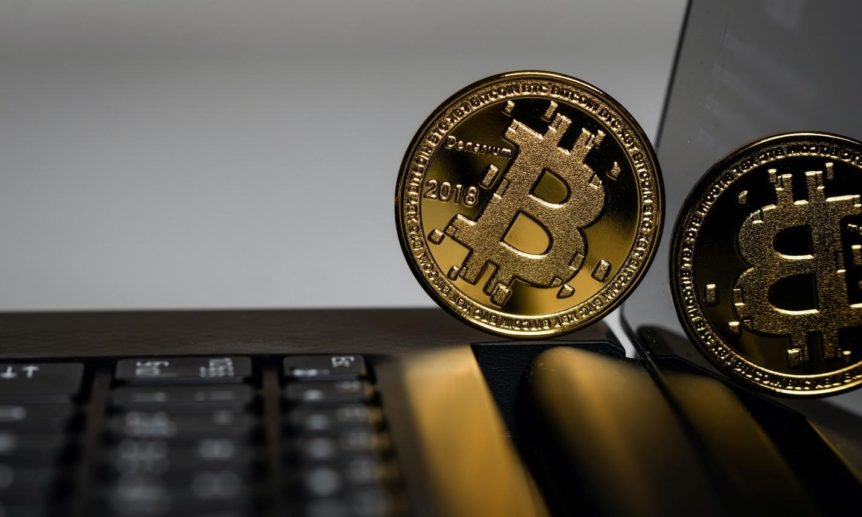In a May 2021 press release, the US Treasury Department announced that it had put in place various measures to crack down on fraudulent cryptocurrency transactions. It stated that it would now require individuals or business entities transferring $10,000 or more worth of crypto assets to report those transactions to the Internal Revenue Service (IRS).
According to the US Treasury, the department has been facing significant detection issues since cryptocurrency facilitates what it termed as broad “illegal activity,” including tax evasion. This new directive called into question the legality of crypto assets.
Is cryptocurrency safe? Who regulates it? What legal protections exist for crypto transactions? Here’s everything you need to know.
How Cryptocurrency Works
Cryptocurrency is a broad term that defines digital currency that exists electronically. It does not have physical bills or coins. You can, however, use a service that lets you cash in the digital currency for a physical token.
What exactly makes cryptocurrency different from mainstream legal tender? For one thing, individuals or entities transacting with one another don’t have to rely on third-party intermediaries like banks. You can simply exchange a crypto asset online directly through your smartphone or computer. Bitcoin, Ethereum, Litecoin, and Dogecoin are some of the well-known cryptocurrencies but are not the only ones. New crypto brands are coming up every other day.
Cryptocurrencies run on a technology known as “blockchain.” A blockchain is a public ledger that documents all transactions in a way that makes them difficult to alter. As a result, it provides a secure way for individuals and businesses to transact directly with each other without involving a bank, government, or any other third-party entity.
Each transaction record – also known as a “block” – is linked using cryptography. It is then verified by independent peer-to-peer computer networks before being time-stamped and permanently added as a new block to the ever-growing chain of transactional data. Once a new block is added, the information it contains cannot be modified.
What Is Cryptocurrency Backed By
Digital currencies like Bitcoin have been touted as an alternative to fiat money. How does cryptocurrency have value? What exactly gives currency – digital or otherwise – any type of value? To understand the answer to these questions, let’s first examine the history of currency, more specifically, why they have so-called “value.”
Regardless of the type, currency is only deemed useful and usable if it can be relied upon to maintain its relative value over a long duration without losing that value – depreciation. This is why it is defined as a “store of value.” Throughout history, many societies relied on precious metals or commodities as a means of payment since their value remained relatively stable.
As time progressed, lugging around huge quantities of gold, cocoa beans, and other forms of early currency proved to be cumbersome. This prompted societies to come up with minted currency, many of which were made from valuable metals that had low depreciation risks and long shelf lives.
The minted currency then evolved to take the form of paper money, and many countries around the world went on to adopt the Gold Standard. In this monetary system, the value of a country’s currency was directly linked to gold. Countries that used this system all agreed that the paper money they had circulating in their respective economies could be converted into a fixed amount of gold. In other words, gold was used to back their paper currency.
The Gold Standard was phased out by the US in 1933 and replaced by fiat money – a currency used by a country by order of the government. It is not backed by any commodity or precious metal but rather on the basis that individuals and governments will accept it as currency.
Cryptocurrency as a Store of Value
One of the major challenges cryptocurrency faces is its status as a store of value, which ultimately depends on its usefulness as a medium of exchange. This whole premise is based on the assumption that for a currency – or any commodity – to be used as a “store of value,” it needs to possess some form of intrinsic value.
Take a cryptocurrency like Bitcoin, for instance. If individuals and entities don’t use it as a medium of exchange, it effectively loses its practical usefulness. As a result, it won’t have any intrinsic value and would, therefore, not be appealing as a store of value.
In the same way that fiat currencies like the US dollar are not backed by precious metals or any other physical commodities, the same applies to cryptocurrency. Speculative interest is the primary driver of its current value.
How Do You Make Cryptocurrency

Cryptocurrency is digital, which means it is created by cryptographic code – hence the name. A new crypto coin is created when a transaction is confirmed. This process is known as “mining.”
While Bitcoin and Ethereum rely on mining to create new coins, not every cryptocurrency uses this technique. The specific method a particular cryptocurrency brand adopts to generate new coins depends on its underlying code.
For instance, a new token may be created as a reward from software developers upon completion of certain tasks of interest to the holders of the tokens in question. That being said, most cryptocurrencies create new coins when people all over the world run hardware that adds new blocks (transactions) to the blockchain.
How Do You Buy Cryptocurrency
Aside from mining cryptocurrency, there’s the option to buy it instead. Here’s how to go about it.
1. Identify a Crypto Broker or Exchange
A crypto broker or crypto exchange both allow you to buy cryptocurrency. Nonetheless, there are some critical differences between the two.
On the one hand, a crypto exchange refers to a platform that connects buyers and sellers looking to trade cryptocurrencies. While these platforms generally have low fees, their interfaces can be quite complex, which new investors might find challenging. Some of the most popular crypto exchanges include Coinbase and Gemini.
On the other hand, a crypto broker interacts with crypto exchanges on your behalf to take the complexity out of the whole process. Although they may charge higher fees, their interfaces are easy and convenient to use. Some popular crypto brokers include Robinhood and SoFi.
2. Create an Account
Once you pick a crypto broker or exchange, you’ll need to sign up to their platform to create a trading account. Depending on the platform in question and the amount you intend to invest, you will need to verify your identity as part of federal regulatory requirements.
This may involve submitting a copy of your driver’s license or any other applicable identification document and uploading a clear photo/selfie of yourself to verify that you are indeed the person who appears in the documents you submitted.
3. Deposit Funds to Your Account
Once your crypto account is up and running, you’ll then need to deposit cash in your account. You can do this by making a wire transfer from your bank account or authorizing payment from your debit or credit card.
4. Place an Order for Your Cryptocurrency
Once you’ve funded your account, you can then choose from the hundreds of cryptocurrencies available and place your order. You’ll need to indicate the number of coins you wish to purchase, although most brokers and exchanges allow you to buy fractional shares of cryptocurrency.
5. Pick a Cryptocurrency Storage Method
Keep in mind that the Federal Deposit Insurance Corporation (FDIC) does not back cryptocurrency exchanges. This leaves them vulnerable to hacking and theft. There’s also the chance of losing your investment if you forget the access codes to your account. That’s where cryptocurrency storage methods come into play.
If you buy cryptocurrency via a broker, there are three storage options available to you.
- Leave your assets in the crypto wallet attached to the exchange
- Transfer your assets to an entirely different provider
- Use a hot wallet that stores crypto assets online and runs on internet-connected devices like smartphones, tablets, or computers
- Use a cold wallet that stores crypto assets online on external, non-internet-powered devices like a hard drive or USB drive
If you purchase crypto assets through a broker, you have little choice over the storage method used.
How to Sell Cryptocurrency

Cashing out on your investment is just as important as buying cryptocurrency. Aside from using a crypto broker or exchange, there are three other avenues through which you can sell your crypto assets.
1. Direct P2P Trades
There’s the option to sell cryptocurrency directly to another individual or entity online or in person. You can use a specialized and reputable crypto exchange platform to sell crypto assets online by posting a listing and indicating your desired price. Interested parties would then be able to complete the sale as per the instructions provided on the site.
Alternatively, you could meet with an interested party at a physical location and sell your crypto assets for cash.
2. Crypto ATMs
While these may look like conventional cash machines, they are not ATMs in the traditional sense of the word. They allow you to scan a QR code generated by your crypto wallet and then sell your cryptocurrency for cash.
3. Withdrawing Funds
You can also use a wire transfer service to withdraw the cash in your bank account once you sell your crypto assets on a crypto exchange.
What Can You Buy with Cryptocurrency
Although most people use crypto assets as an investment, there are several goods and services you can purchase using Bitcoin, Ethereum, and other popular digital currencies. For instance:
- Online travel websites like CheapAir.com and Expedia.com accept cryptocurrency as a mode of payment
- Several internet-based businesses
- Small businesses that accept payments in cryptocurrency
- Several gambling sites and casinos
- Some restaurants and retail outlets
- Purchasing other cryptocurrencies
Security Vulnerabilities of Cryptocurrency
To reiterate, cryptocurrencies run on blockchain technology. It defines the way transactions are recorded, time-stamped, and added onto the chain, making it difficult for anyone to alter this information. Before this happens, each transaction has to go through a two-factor authentication process.
This begs the question – Can cryptocurrency be hacked? Unfortunately, the short answer is – yes. Case in point: The Coincheck and BitGrail hacks of 2018, which led to more than $534 million and $195 million in losses, respectively.
How do hackers steal cryptocurrency? If a hacker can somehow decipher your personal information – which may or may not be cryptocurrency-related, they can use it to infiltrate your transactions and steal your crypto assets. By this, we mean information linked to a cell phone number or email address used to authenticate your transactions.
Cybercriminals can also steal crypto assets by bugging your computer or smart device with malware, but not in the way you might think.
What Is Cryptocurrency Malware
Mining cryptocurrency is computationally intensive. It requires significant resources from dedicated computer hardware such as processors and graphics cards. Unfortunately, there’s a growing trend of hackers infecting computer systems with cryptocurrency mining malware to use the machines’ resources to mine cryptocurrency, unbeknownst to the users. This significantly affects the device’s performance, increases its wear and tear, and drives up other associated costs such as power consumption.
Cryptocurrency Scams
One tell-tale sign of a cryptocurrency scam is being asked to pay for goods and services using cryptocurrency only, with no other payment option. Scammers bank on the fact that there’s no way of getting your money back once you pay using crypto.
Unfortunately, unlike credit cards and debit cards that come with legal protections, cryptocurrency payments do not. There’s no way to dispute a payment and have that transaction reversed. The best cryptocurrency consumer protection measures you can take to avoid getting scammed is to steer clear of individuals or companies that:
- Guarantee big payouts
- Make big claims with no explanation on how they achieve this
- Offer unsolicited investment proposals and job offers
- Promise guaranteed returns
Be On the Lookout
Cryptocurrency scams and related fraudulent activities should be reported to the Federal Trade Commission (FTC), the Commodity Futures Trading Commission (CFTC), and the US Securities and Exchange Commission (SEC).
For more information, check out the FTC cryptocurrency workshop sensitization videos exploring how scammers exploit unsuspecting crypto investors and how you can protect yourself.
Do you have any legal questions for us? Chat online with a Laws101 attorney right now.
